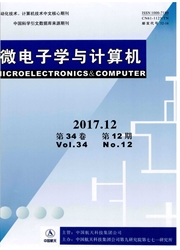

 中文摘要:
中文摘要:
针对网格计算中的资源管理,提出了一种具有公平交易属性的计算经济模型。通过价格监管、公平调度、信誉度和运行监测等方法对日用品市场模型进行控制和约束,从而使得网格资源的市场交易变得稳定、有序且高效。仿真实验结果表明,和传统经济模型比较,模型在任务完成时间、系统吞吐量和稳定性等方面都有所提高。
 英文摘要:
英文摘要:
The computational economy model provides mechanisms for optimizing resource provider and consumer objective functions through trading and brokering services. According to T. Sandholm, criteria used for judging effectiveness of a market model include Social welfare, Pareto efficiency, Individual rationality, Stability, Computational efficien- cy Distribution and communication efficiency etc. In the light of this criterion, the computational economy model used in Grid is not an ideal one, in particular, it' s lack of stability and computational efficiency. This study presents a Fair Model for Computational Economy in which the Credit Metering, Price Advisor, Running Inspector and Fair Scheduling were presented. Credit Metering established a mechanism to evaluate credit of every part in model, and boosted them dutiful in the services, Price Advisor assured the price in the model is reasonable, Running Inspector keep trace the serve pro- cess and analyze fraud in resource trade, and last the Fair Scheduling guarantee fair use resource for all users and being scheduled for all resources. Furthermore, we offer emulation experiments to show that the model is efficient and valuable, especially it' s helpful to the stability and anti-fraud within Grid computing economy environments.
 同期刊论文项目
同期刊论文项目
 同项目期刊论文
同项目期刊论文
 期刊信息
期刊信息
